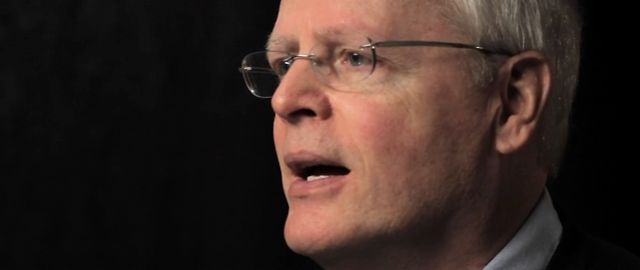Cessationist Misuse of Ephesians 2:20, by Sam Storms
In the on-going dialogue between cessationists and continuationists there is a passage that the former almost always mention. It is, in many instances, their go-to text, their trump card, so to speak. But a close look at Ephesians 2:20 will demonstrate that it fails to accomplish what the cessationist desires. Paul writes:
“So then you are no longer strangers and aliens, but you are fellow citizens with the saints and members of the household of God, built on the foundation of the apostles and prophets, Christ Jesus himself being the cornerstone” (Eph. 2:19-20).
The cessationist insists that, according to the analogy Paul employs, apostles and prophets belong to the period of the foundation, not the superstructure. That is to say, these two groups and their respective gifts were designed by God to operate only during the early years of the church’s existence in order to lay the once-for-all foundation.
At the Strange Fire conference, in his session devoted to articulating arguments for cessationism, Tom Pennington stated that “once the apostles and prophets finished their role in laying the foundation of the church, their gifts were completed,” which is to say, they ceased to function and eventually ceased to exist altogether.
But several things must be noted.

Sam Storms
The cessationist argument fails to take note of vv. 21-22 where Paul refers to the superstructure of the church as under construction, so to speak, as he speaks/writes (note the consistent use of the present tenses in vv. 21-22). In other words, the apostles and prophets of v. 20, among whom was Paul, were also contributing to the superstructure, of which the Ephesians were a contemporary part, simultaneous with their laying the foundation on which it was being built. We must be careful not to push the metaphor beyond what Paul intended by it.
To use an analogy, once a man establishes a company, writes its by-laws, articulates its vision, hires employees, and does all the work essential in laying the foundation for its future work and productivity, he does not necessarily cease to exist or to serve the company in other capacities. As Jack Deere points out, “the founding director of a company or corporation will always be unique in the sense that he or she was the founder, but that does not mean the company would not have future directors or presidents” (Surprised by the Power of the Spirit, 248).
Furthermore, on the cessationist’s view, all NT prophets functioned foundationally. But there is nothing to suggest that “the prophets” in Ephesians 2:20 is an exhaustive reference to all possible prophets in the church. Why should we conclude that the only kind of prophetic activity is “foundational” in nature, especially in light of what the NT says about the extent and effect of prophetic ministry? It simply isn’t possible to believe that all prophetic utterances were part of the once-for-all foundation of the church. For one thing, the NT nowhere says they were. For another, it portrays prophetic ministry in an entirely different light from the one most cessationists attempt to deduce from Ephesians 2:20. Surely not everyone who ministered prophetically was apostolic. Therefore, the cessation of the latter is no argument for the cessation of the former.
Category: Biblical Studies, Pneuma Review, Winter 2014


